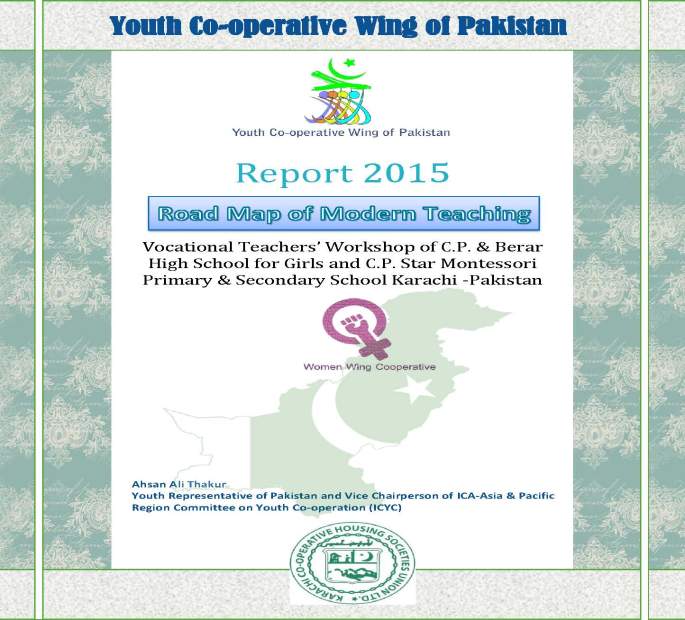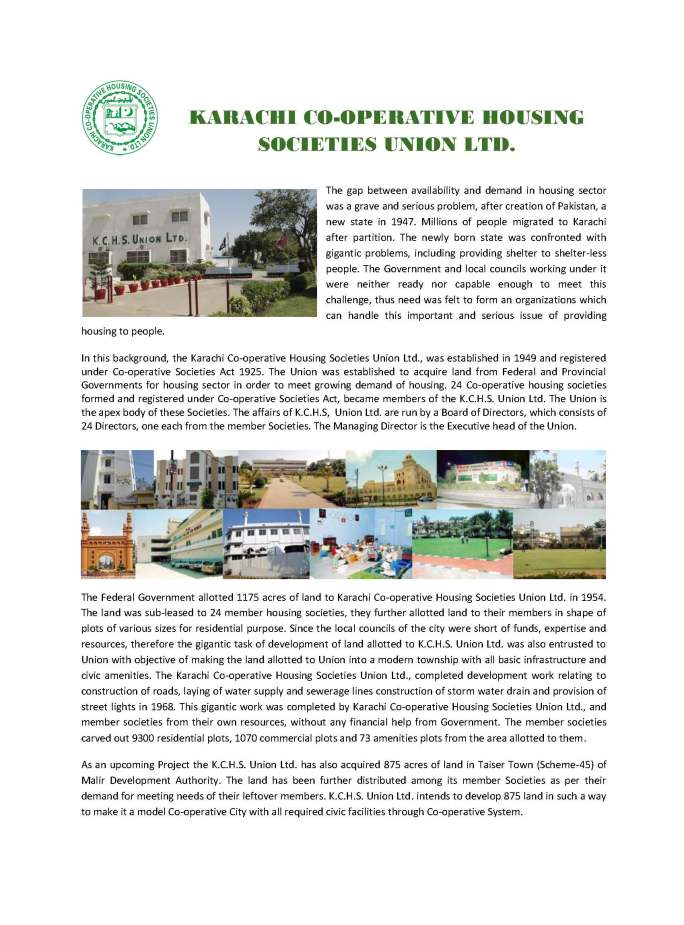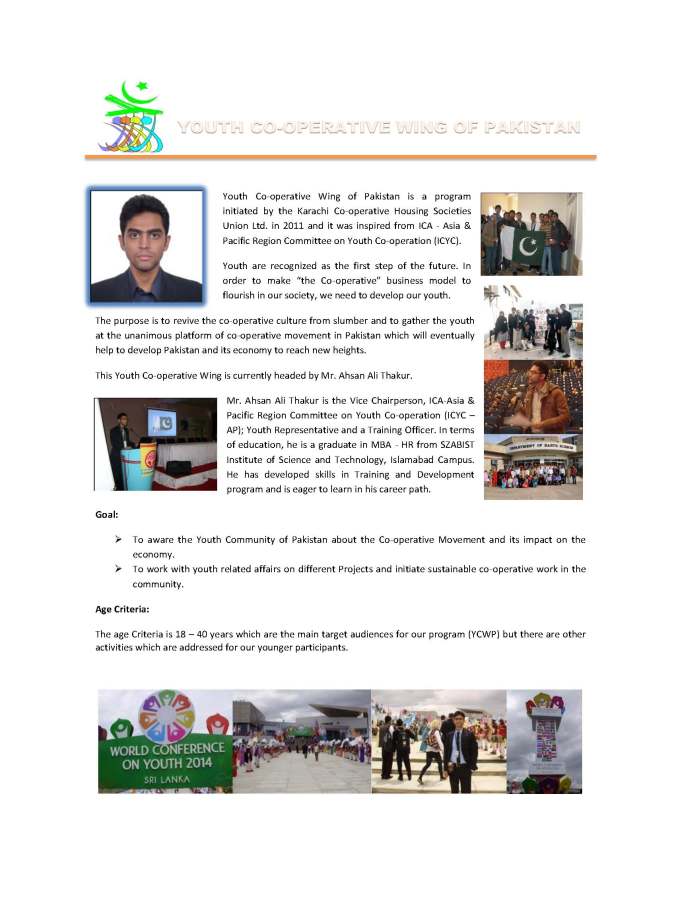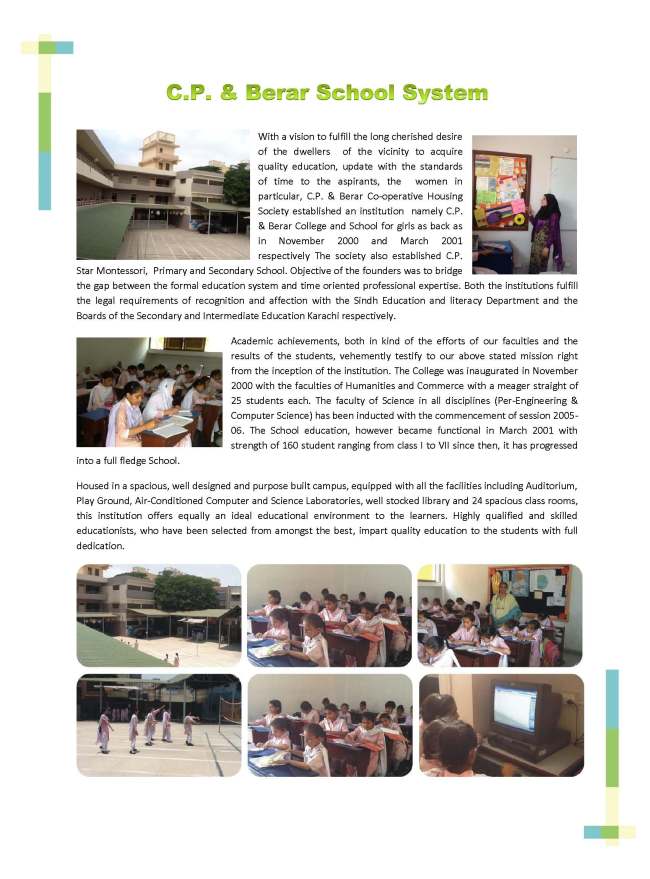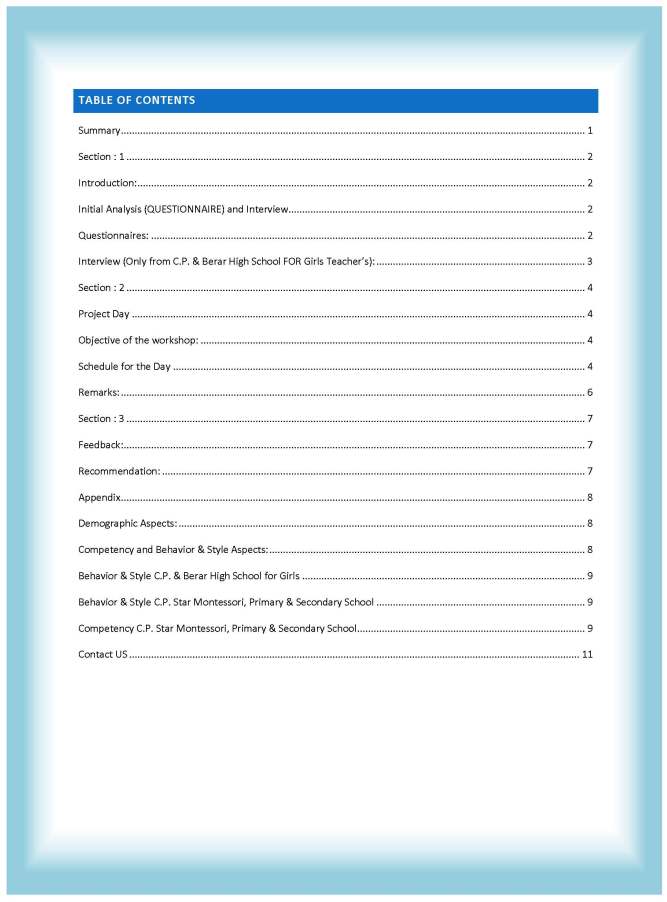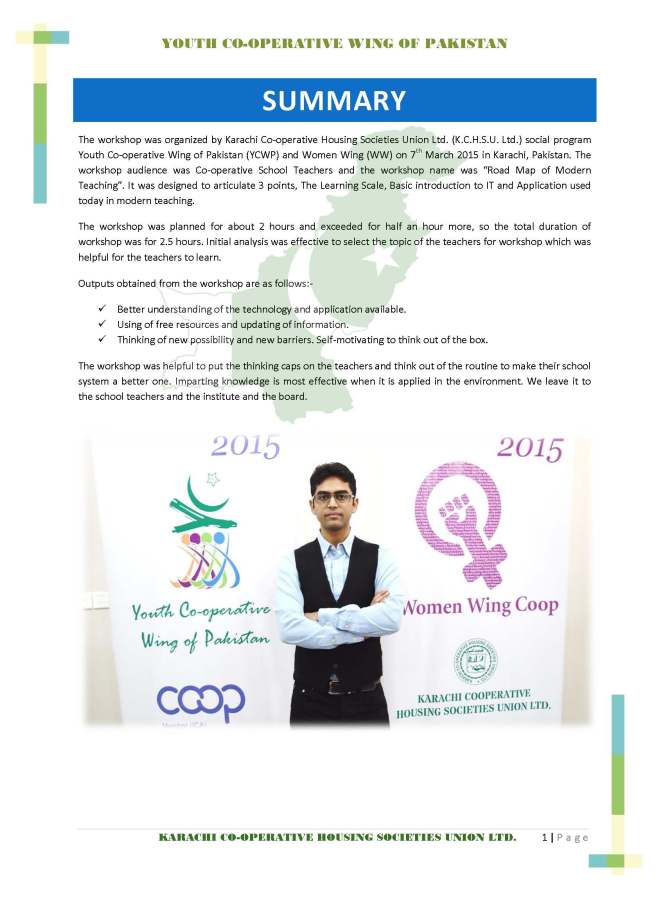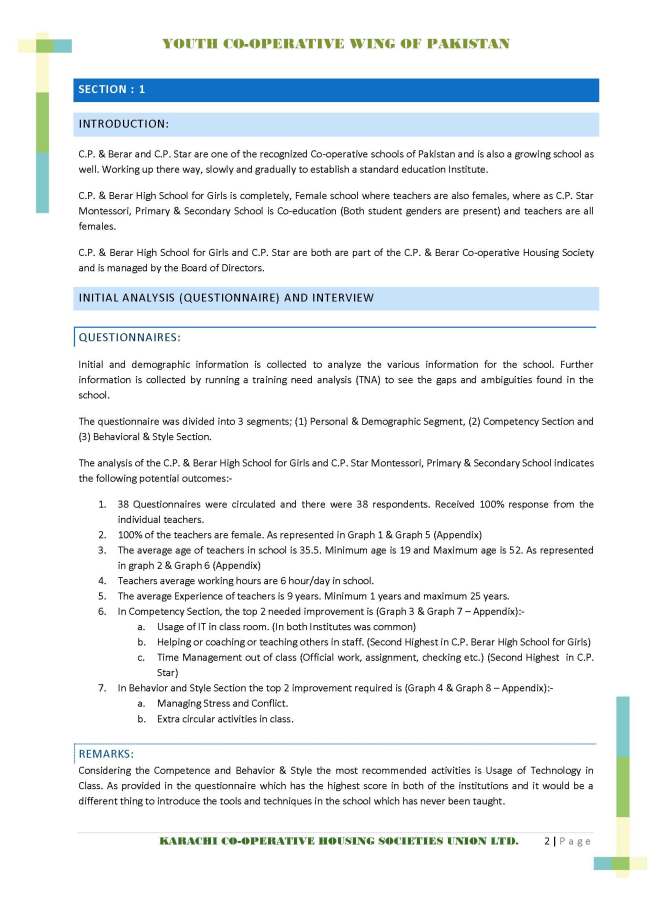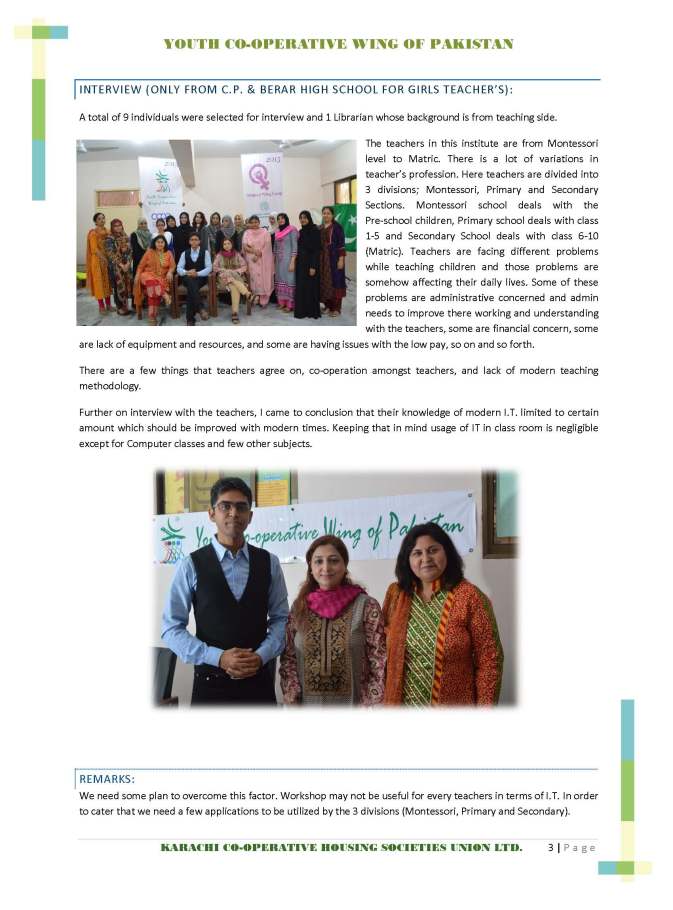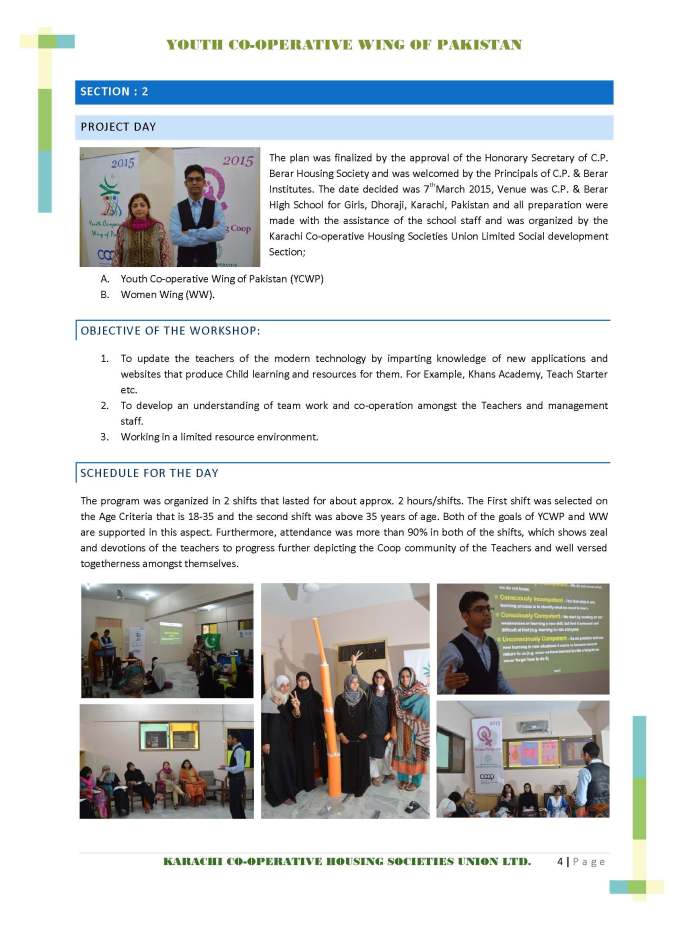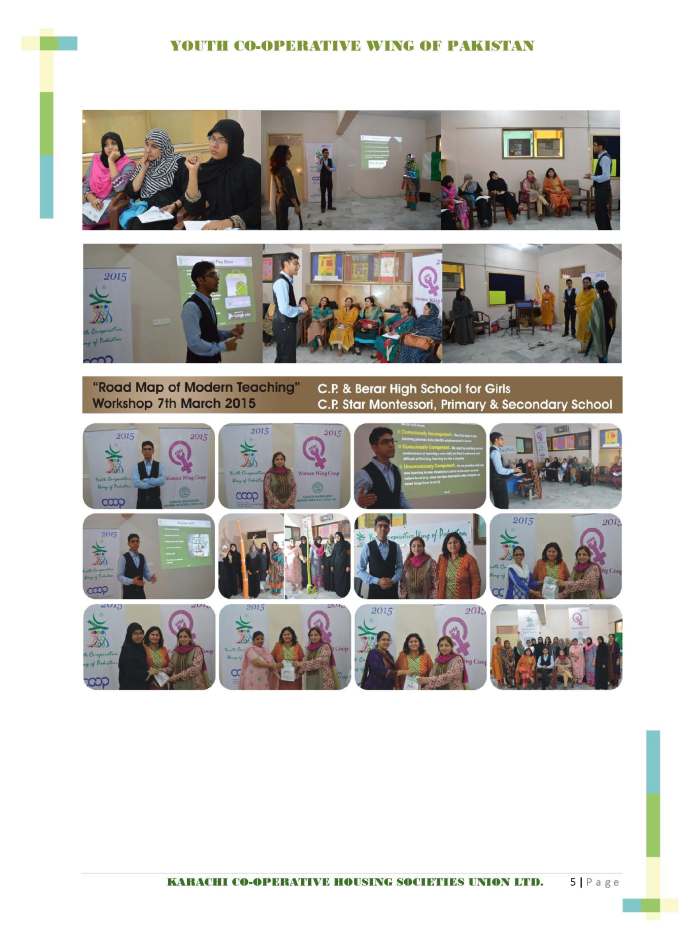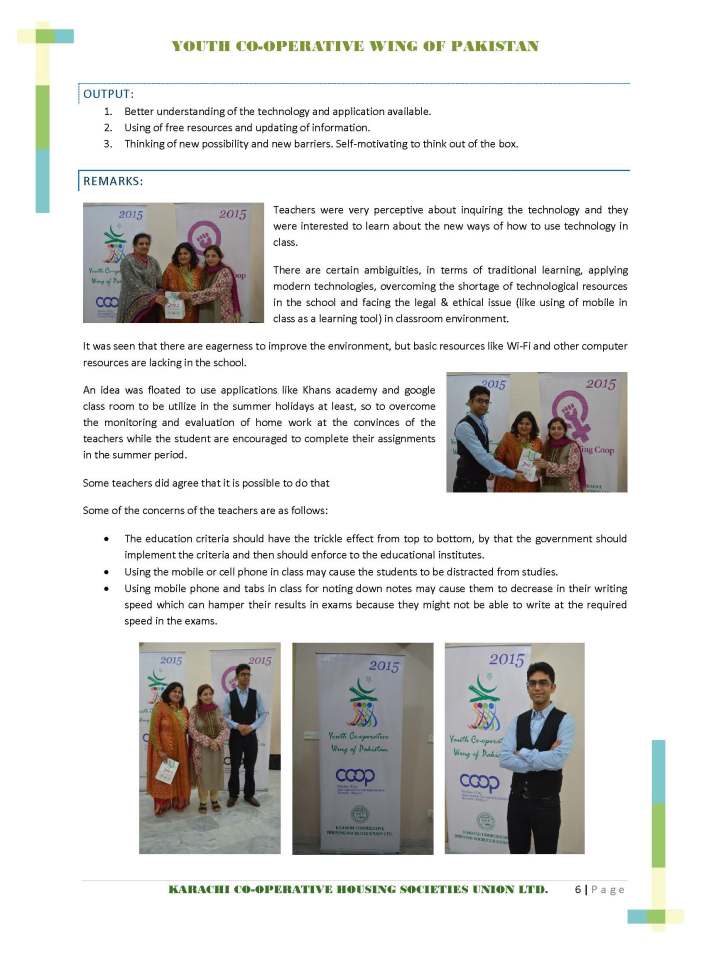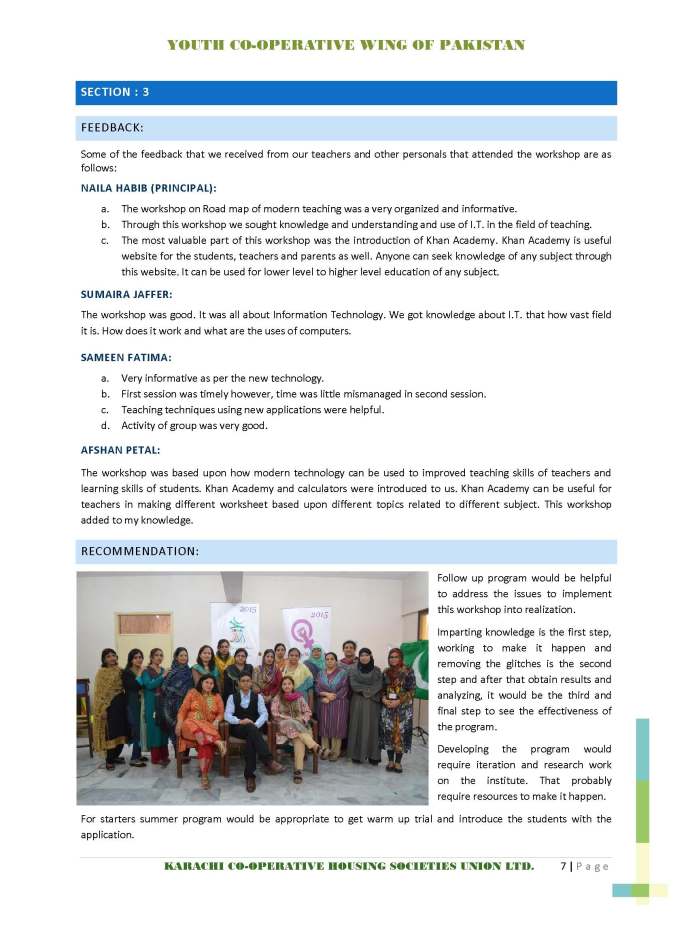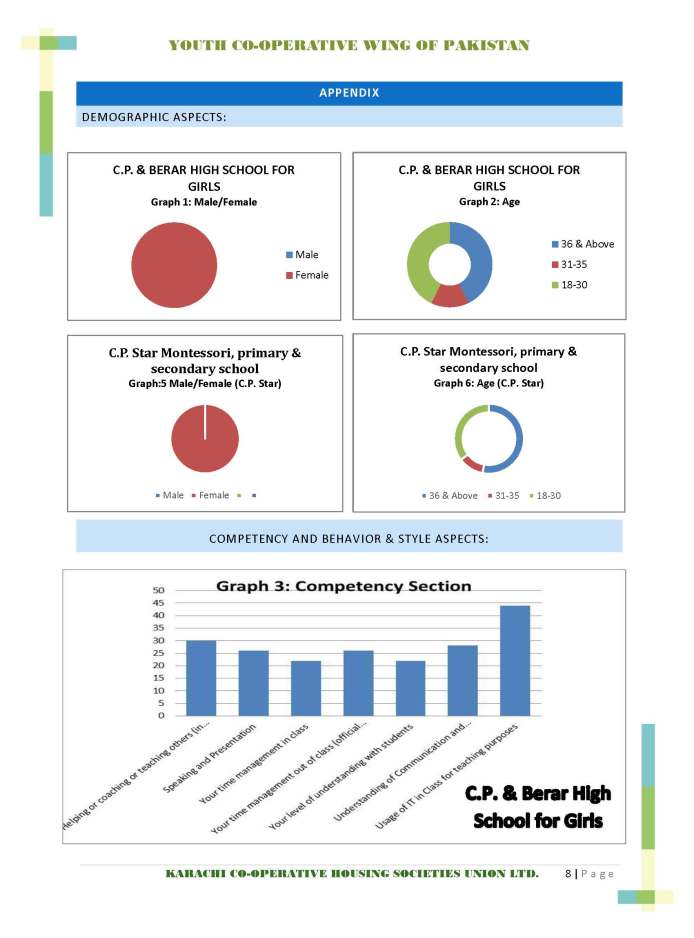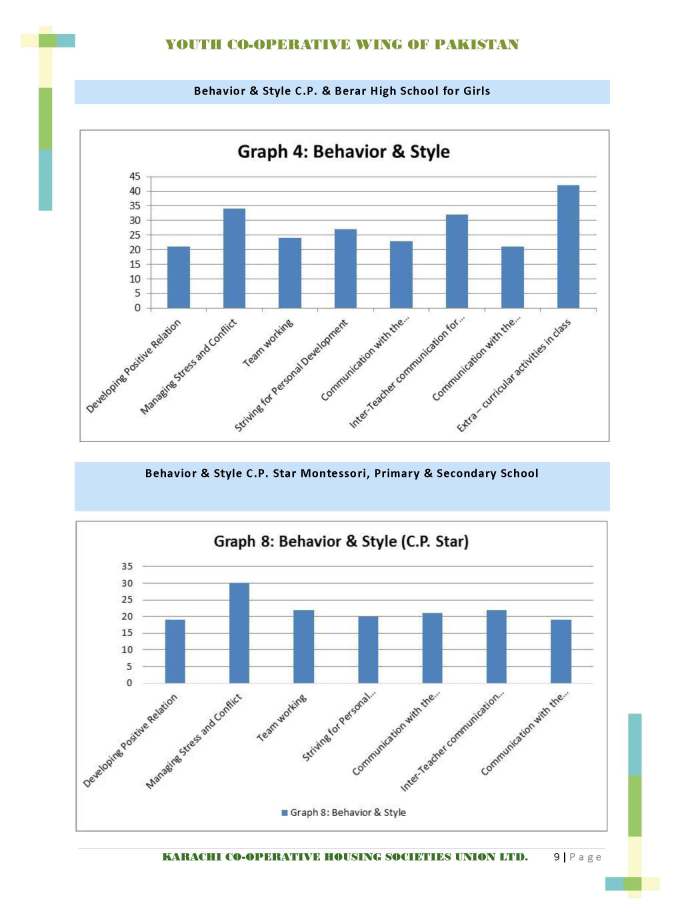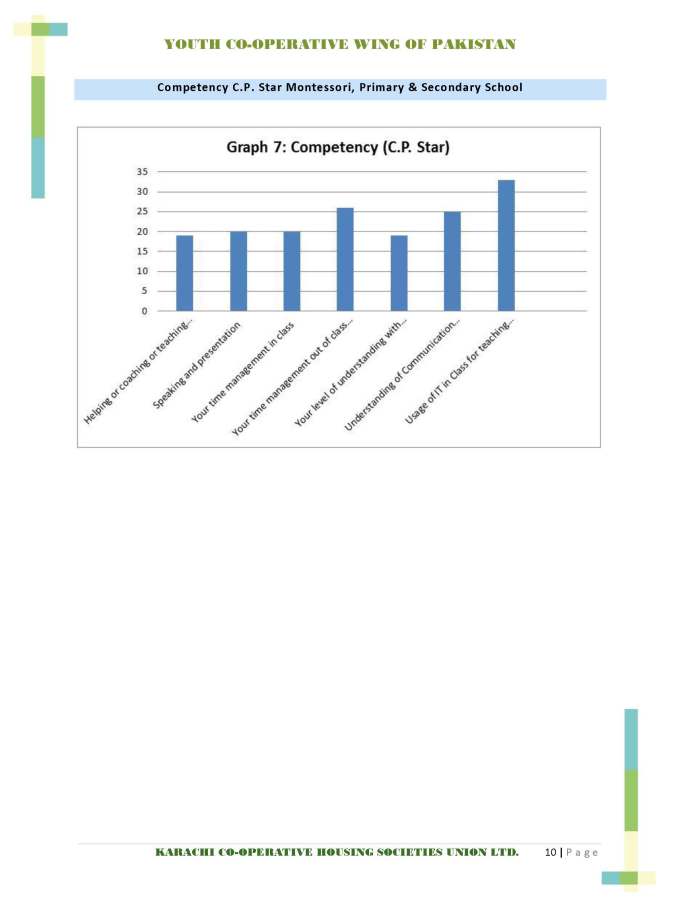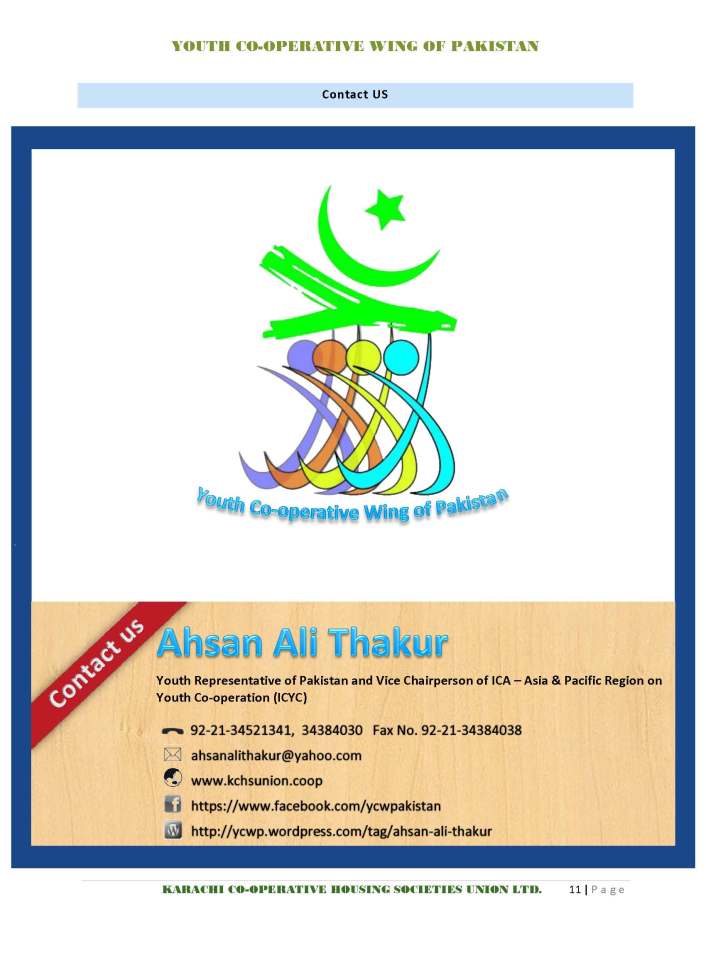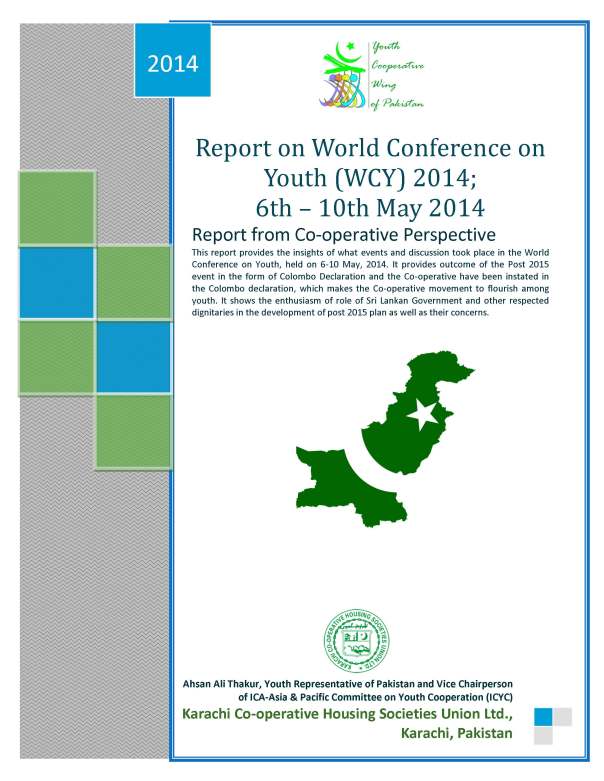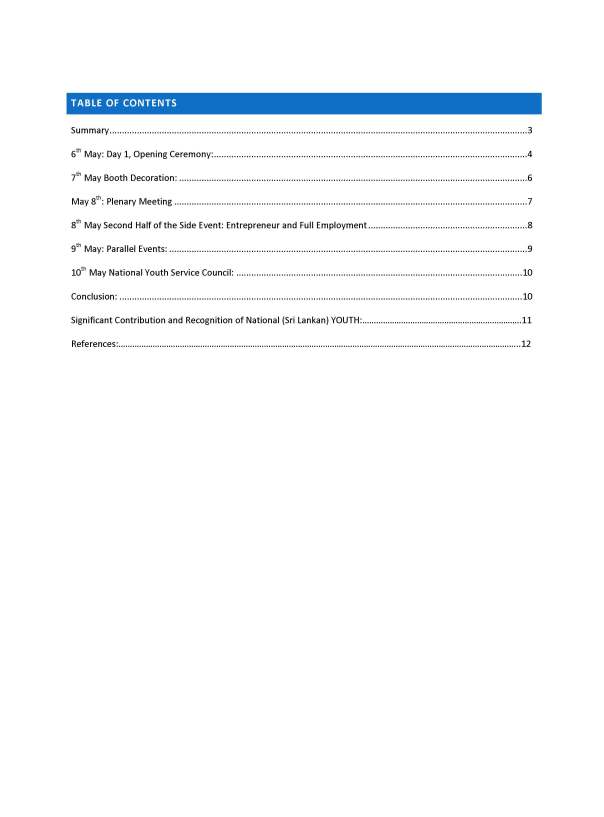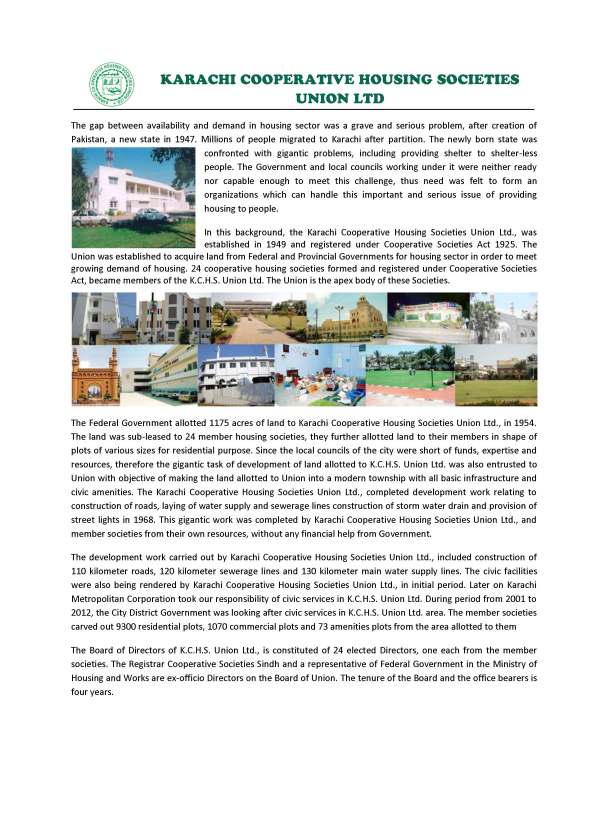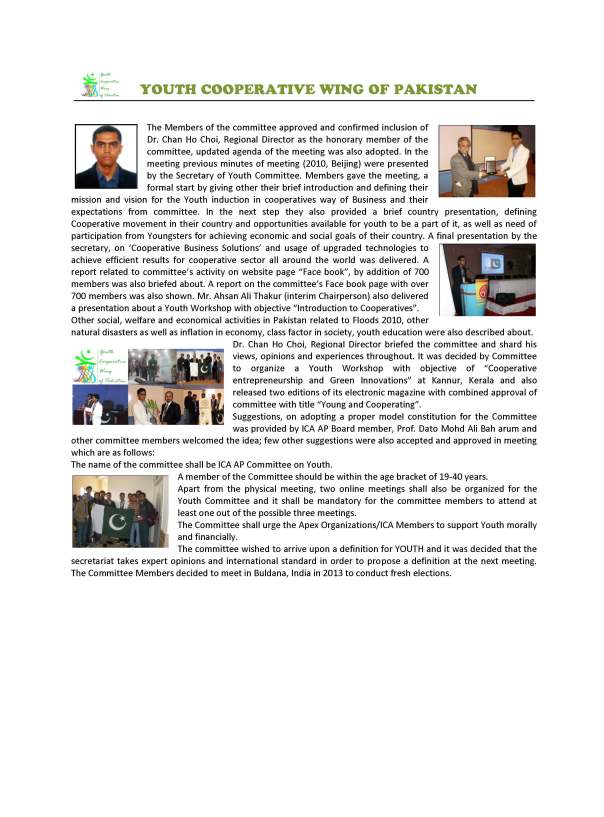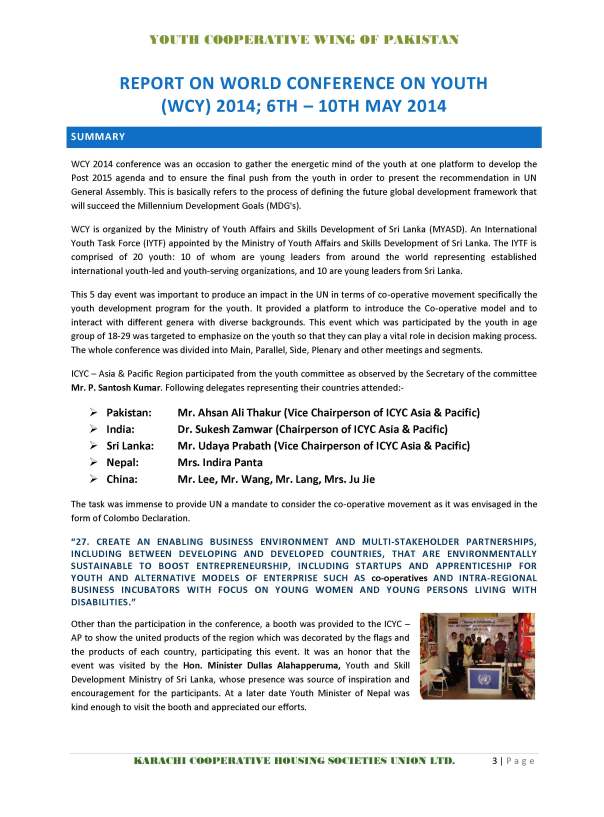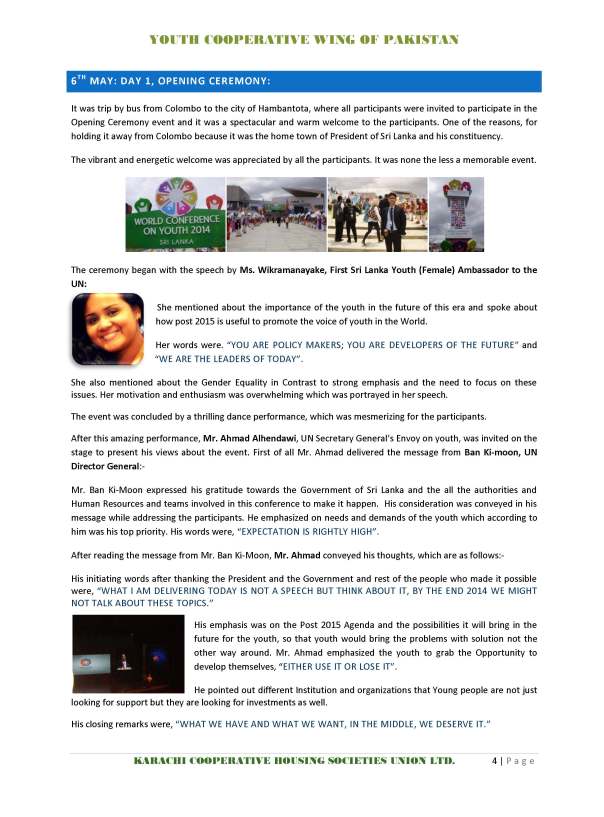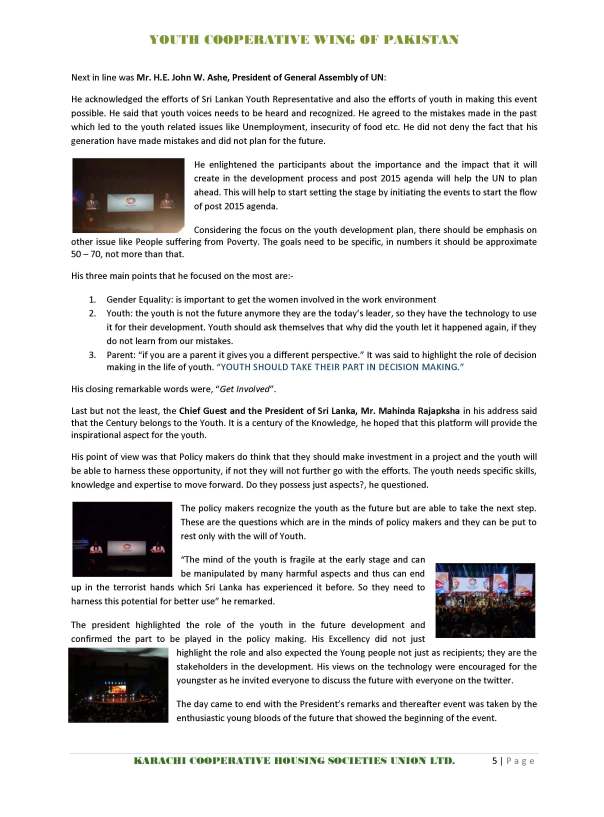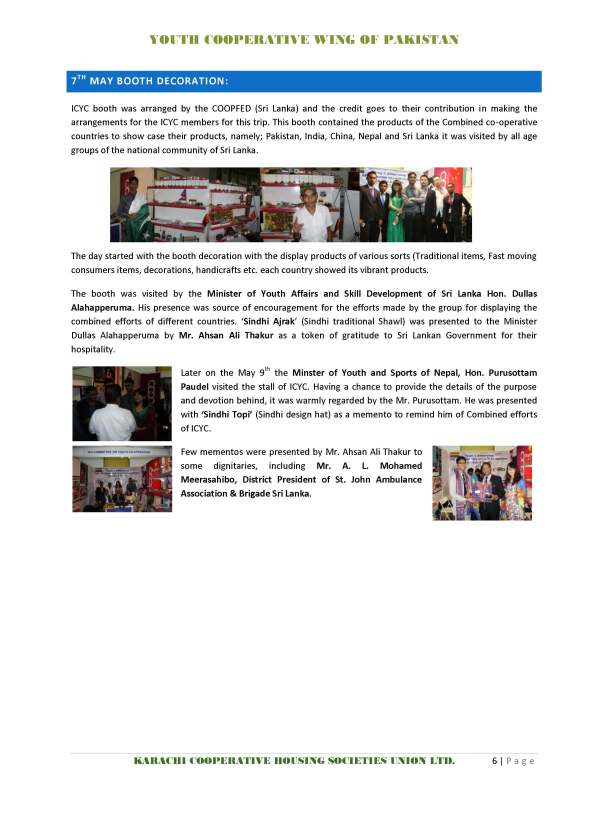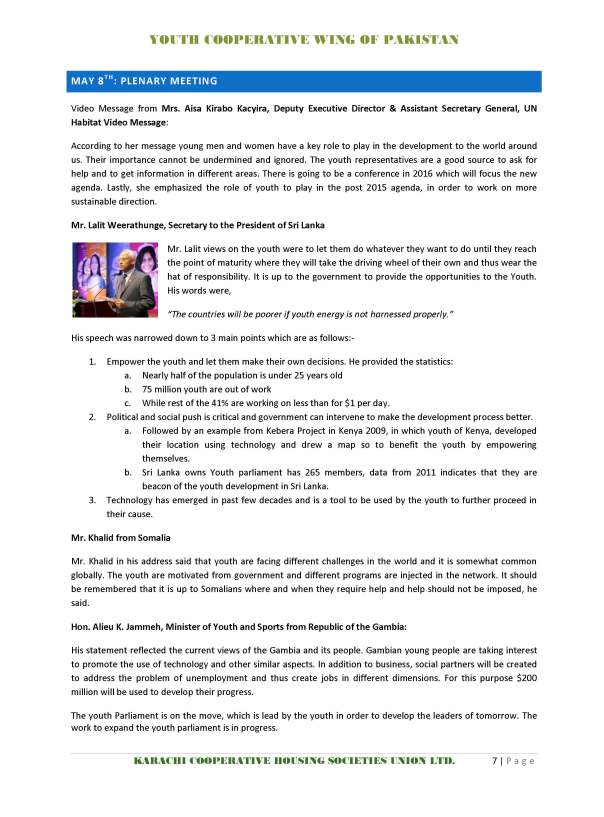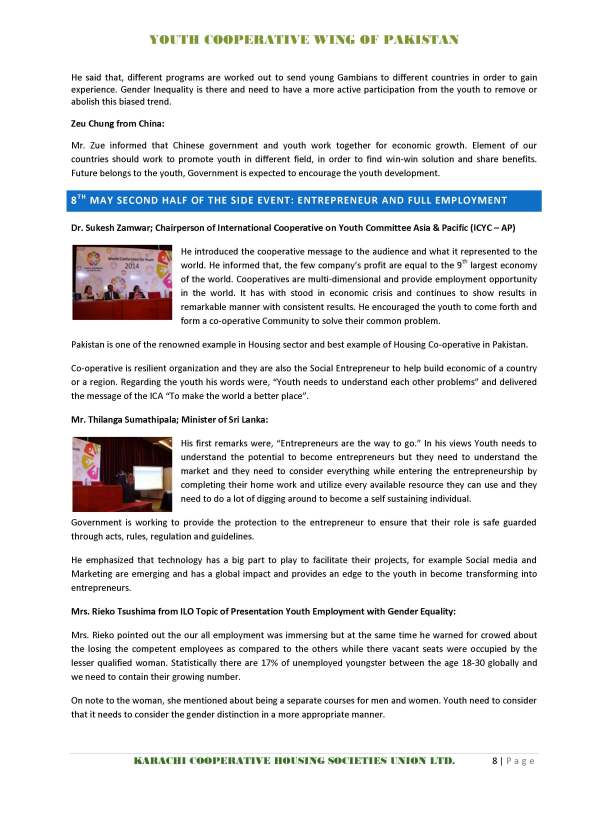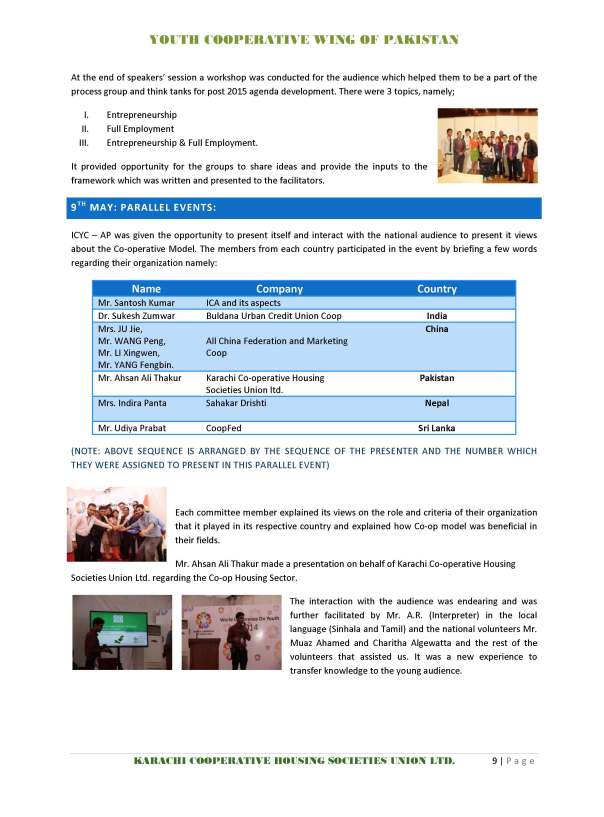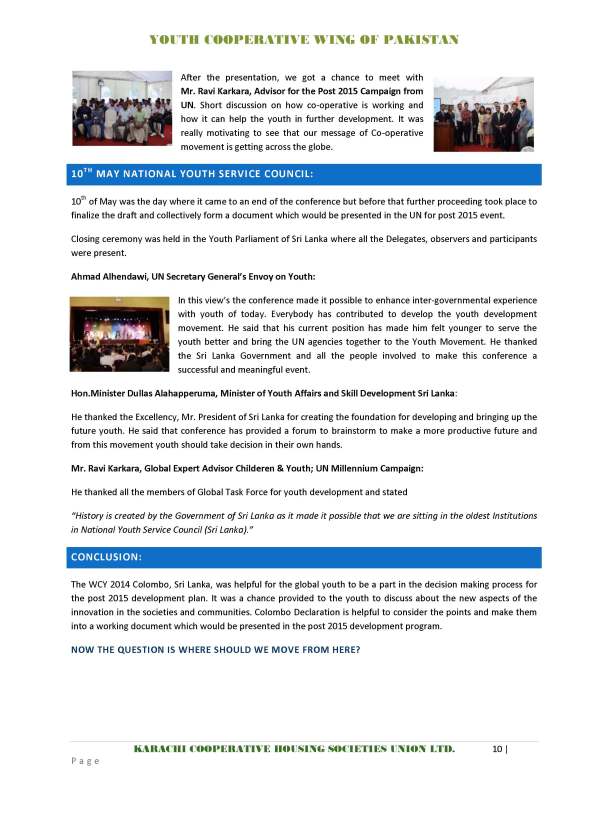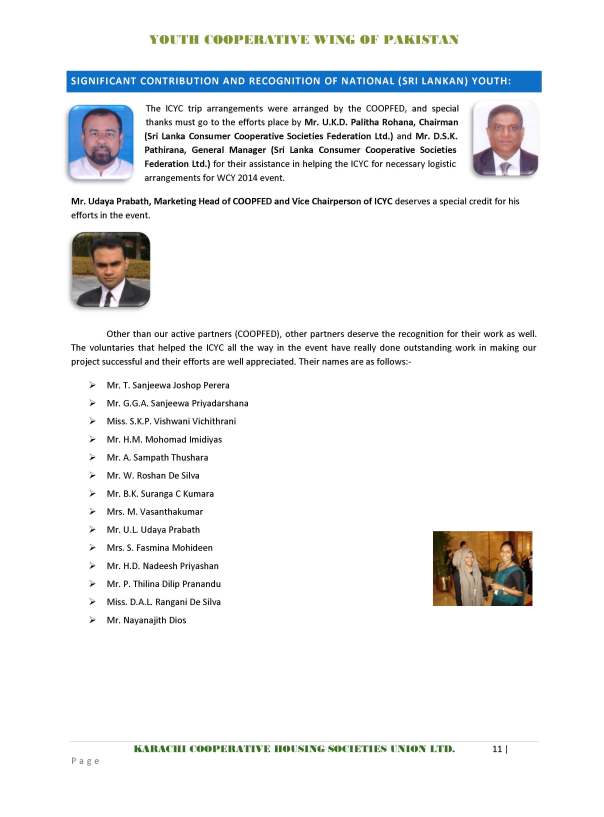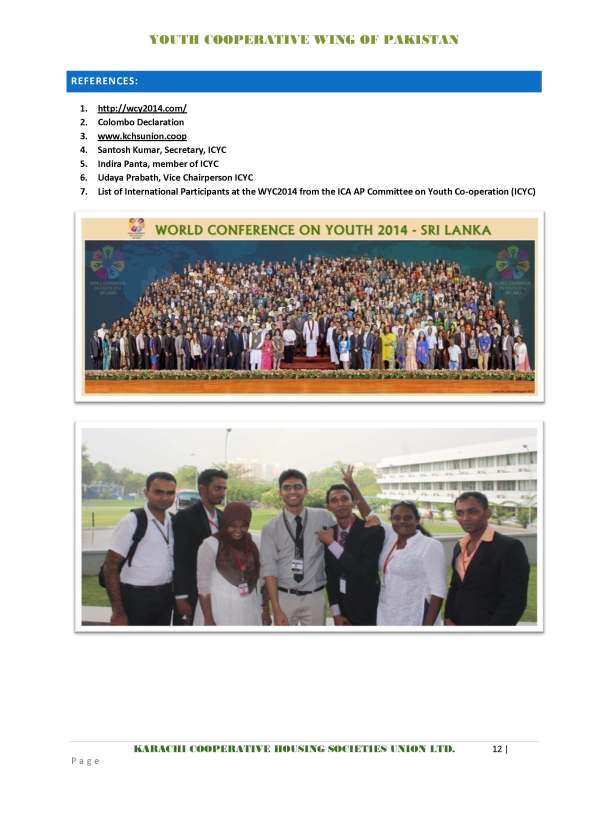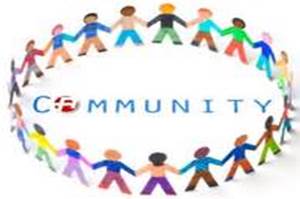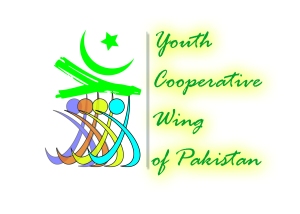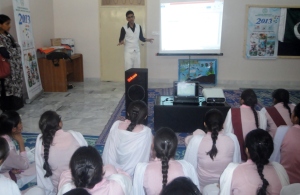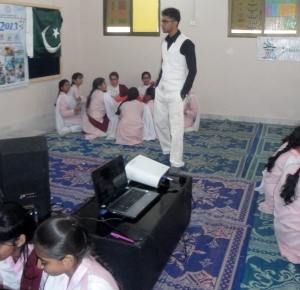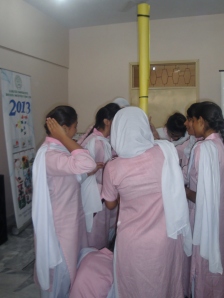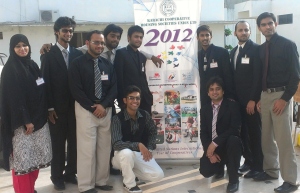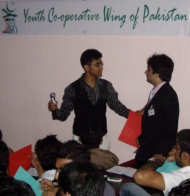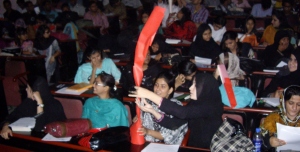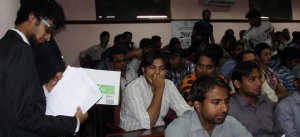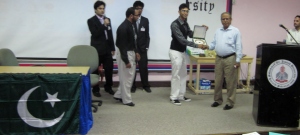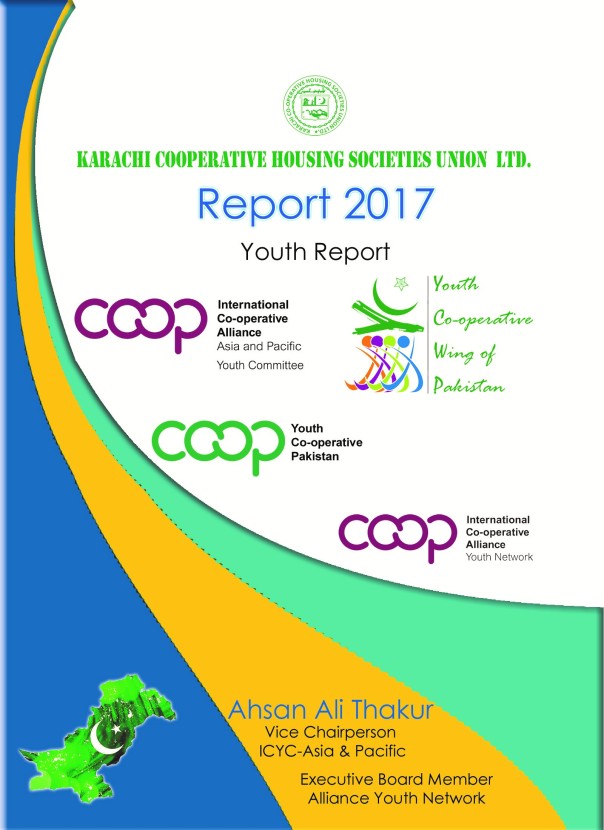
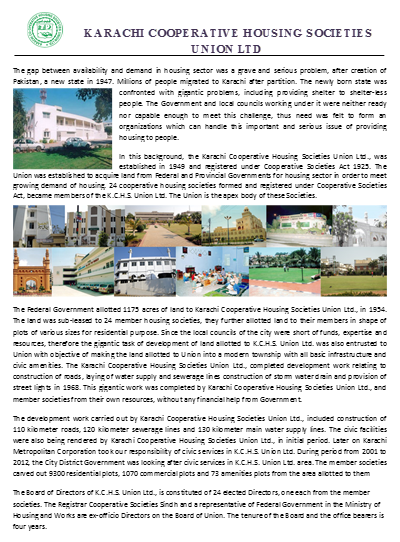
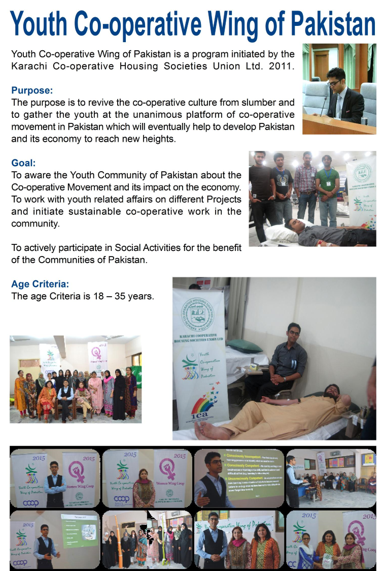
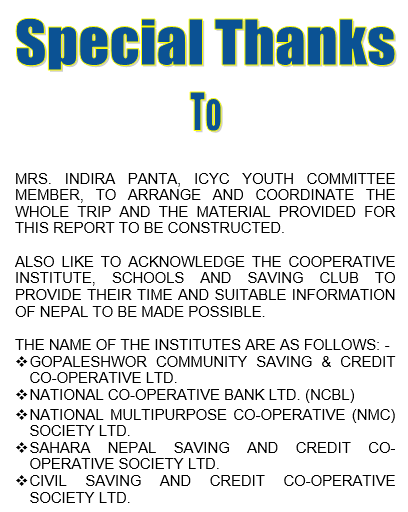
Mrs. Indira Panta, ICYC Youth Committee Member, to arrange and coordinate the whole trip and the material provided for this report to be constructed.
Also like to Acknowledge the Cooperative Institute, Schools and Saving club to provide their time and suitable information of Nepal to be made possible.
The Name of the Institutes are as follows: –
- Gopaleshwor Community Saving & Credit Co-operative Ltd.
- National Co-operative Bank Ltd. (NCBL)
- Nepal Multipurpose Co-operative (NMC) Society ltd.
- Sahara Nepal Saving and Credit Co-operative Society ltd.
- Civil Saving and Credit Co-operative Society Ltd.
Table of Contents
Financial Literacy Program (Indira Panta): 2
Financial Literacy Program: Students Saving Club. 3
Iteration of the Report of Survey. 5
Gopaleshwor Community Saving & Credit Co-operative Ltd. 11
List of Members registered in Nepal: 13
Nepal Multipurpose Co-operative (NMC) Society. 14
Executive Summary
Financial Literacy program is a youth based program which is designed to run on cooperative model through financial institutions in the Nepal. The basic idea is to educate the youth about how to save their finances for the future in a better way. Program directly helps the student & their parent to uplift their way of thinking and save in a better way. Financial institutions have a major role to make it a success. The saving of the students is collected by these Credit and Saving Cooperative and are used to invest for development of their community.
Indirectly, the program is helping to raise the living standards of the community by changing the thinking process of the community and have a better life. On the other hand, these saving program are providing Saving and Credit Cooperative to serve the community, decrease the Unemployment rate and create opportunities for the investment for the future.
Introduction:
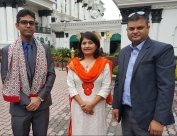
This report reflects upon the Financial Literacy Program for the Students and the Students Savings Club as well as issues raised by the cooperative other than financial literacy program. There are many Financial Literacy Program based in Nepal having a multitude of audience for their own program. However, this one targets the Youth and more specifically students. This report is the reflection and observation of Mr. Ahsan Ali Thakur on his visit to Nepal in August 21st to 27th, 2017 (Considering the season after the flood devastation had occurred in the country), and on Financial Literacy Program for the students was initiated by Mrs. Indira Panta.
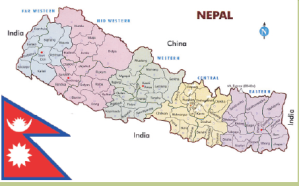 To have a better understanding of the program, 3 districts were visited (Jhapa, Pharping and Kathmandu Valley). This report will provide an insight for the gravity of the Financial Literacy Program in Nepal and how it is changing the behavior as well as some aspects of the lack of role of the National Cooperative Federation (NCF), National Apex body of Nepal, in promoting the local Cooperative to ICA platform. According to the data provided by the National Co-operative Bank Limited. There are total 33599 of Co-operative in Nepal (as of July 15, 2016). 1There are only 5 registered Co-operative in ICA-AP membership from NEPAL out of 33599. There are other organization that want to be a part of the ICA thus bringing more membership can occur and have a better pool of candidates to share the resources for the Development of Cooperative Movements.
To have a better understanding of the program, 3 districts were visited (Jhapa, Pharping and Kathmandu Valley). This report will provide an insight for the gravity of the Financial Literacy Program in Nepal and how it is changing the behavior as well as some aspects of the lack of role of the National Cooperative Federation (NCF), National Apex body of Nepal, in promoting the local Cooperative to ICA platform. According to the data provided by the National Co-operative Bank Limited. There are total 33599 of Co-operative in Nepal (as of July 15, 2016). 1There are only 5 registered Co-operative in ICA-AP membership from NEPAL out of 33599. There are other organization that want to be a part of the ICA thus bringing more membership can occur and have a better pool of candidates to share the resources for the Development of Cooperative Movements.
2In terms of Nepal, the brief overview is as follows: –
| Population | 29187037 – Last UN Estimate (July 1, 2017) |
| Literacy rate | 48.6%, of which 62.7% are males and 34.9% are females. |
| Life Expectancy | 70.699 year (UN 2015) |
Nepal is a landlocked country, sharing 3 sides with Indian border and 1 side with Chinese border. Currently it has been divided into 75 districts and has 7 provinces (7 provinces are under new constitution consideration). The average current age of its citizens is 21.6 years. Only 4% or less of the populations are estimated to be over the age of 65 years, while about 57.9% of the population lies in the 15-65 age bracket.
1 http://www.ica-ap.coop/coop-search-by-country-only?field_country_value=NP
2http://worldpopulationreview.com/countries/nepal-population/
Financial Literacy Program (Indira Panta):
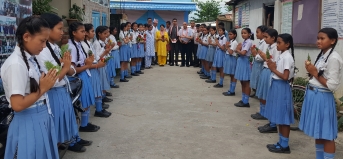 The Program is based on the Co-operative model and Principles. The basic idea is to educate the Students about how to save their money and utilize it for their better prospects of their future. For Instance: Education, saving for their home, saving it for a rainy day, so on and so forth. It is supposed to prepare them for a financially stable lifestyle which the students are not exposed in the schools and colleges not even at university level. It can be said that they are being prepared for the reality of life. The implication for the Financial Literacy Program has positive signs in the societies as it is creating a positive effect around its community and within as well.
The Program is based on the Co-operative model and Principles. The basic idea is to educate the Students about how to save their money and utilize it for their better prospects of their future. For Instance: Education, saving for their home, saving it for a rainy day, so on and so forth. It is supposed to prepare them for a financially stable lifestyle which the students are not exposed in the schools and colleges not even at university level. It can be said that they are being prepared for the reality of life. The implication for the Financial Literacy Program has positive signs in the societies as it is creating a positive effect around its community and within as well.
Firstly, it’s spreading the discipline of being financially stable person before reaching the legal age and making their own financial decisions. Secondly, this program is not just bringing students closer, but it is also attracting a lot of Parents. Thirdly, while practicing financial literacy the students are making social changes in the living pattern and thinking process which in turn as a whole affects the social aspects of the society and the community of its region. For example: discouraging the students to spend the money on unhealthy diet (Chocolates, fast foods and other consumable items) they are encouraged to utilize their finances for a better aspect for tomorrow, thus in terms creating a healthy lifestyle and preparing for the future.
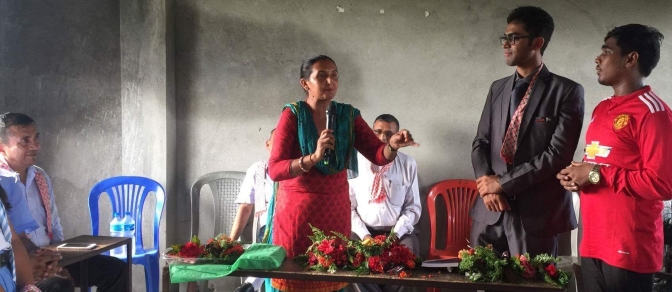 This program is necessary for Nepal as an underdeveloped country, which require such programs to change the thinking process of its people to shift the paradigm of traditional thinking process to modern thinking process and evolve as a developed country.
This program is necessary for Nepal as an underdeveloped country, which require such programs to change the thinking process of its people to shift the paradigm of traditional thinking process to modern thinking process and evolve as a developed country.
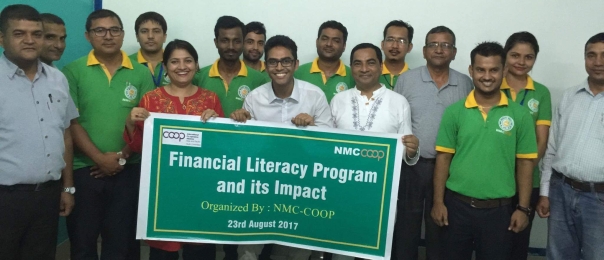
Writer’s Opinion:
Financial Literacy Program: Students Saving Club
It is a Program/Project in which it prerequisite requires a medium to strong financial institutions in its country. Considering Nepal, it has around 13000 to 15000 Saving and Credit institutions (data provided by National Co-operative Bank Limited [NCBL] and the Nepal Federation of Savings & Credit Cooperative Unions Ltd. [NEFSCUN]) and 1 Co-operative Bank in the whole country. This indicated the Nepal has a foundation of medium to strong banking institutions in the country, that is an evident to develop its infrastructure and accumulate its aspects for the future businesses and Co-operative development.
In terms of Financial Literacy Program, it has a lot of potential to establish a cooperative movement in an area where cooperative education is not available. This program is propagating the cooperative values and principle as a whole, imparting the education of cooperative to and through its members, creating job, coop business, opportunities and developing society and community as a whole.
In the writer’s opinion, this program can be helpful for the Government of Nepal to increase the entrepreneur of the future and eventually decrease the unemployment rate. If and when taken into the right directions.
Rules and Regulations:
In terms of rules, regulations and laws pertaining to the Cooperative a lot is based on
New Constitution of the 3 Pillars, in which one pillar
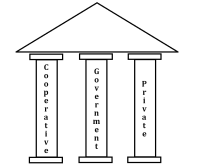
pertains to the Co-operative separately with the hope to make the cooperative movement better for Cooperative Business to flourish in the country.
The effects are yet to be known after its full implementation. It gives a promising start for the cooperative to flourish and create a sustainable development for its citizens. However, it has yet to be seen in terms of generating results. This new constitution is paving the way for the youth as well and there is unofficial report for the youth inclusion in the new constitution, which will allow the youth to be a part of the Cooperative business model at an early age.
This is a good sign for development of cooperative movement in Nepal. However, there are some hindrances as well. These hindrances came to light from the Cooperative institutions itself, after discussing with them. Several cooperatives who are not affiliated with the ICA directly, highlighted the role Nepal Cooperative Federation (NCF). NCF is a national apex body of cooperative in Nepal, it is a non-government institution operated by the citizens of Nepal, those who have Cooperative background professionals as well government institution professionals and politicians. It needs to be highlighted that there are only 5 Cooperative institutions that are part of the ICA. In considering the above statement NCF has been a hindrance for those cooperative institutions who wish to join the ICA but is not recommended by the NCF to ICA. This statement would be biased for now, until the official representative would share their views on these particular issues, that why aren’t they promoting the Nepalese Cooperative to be a part of ICA even when they are operating under the Cooperative laws of Nepal and want to bear their own expense for joining the ICA. This hindrance is not only for Nepalese Cooperatives but for ICA as well, which can increase its members and involve youth in the future prospects of the region. Neglecting such institutions means neglecting prospects for future youth and hampering the cooperative movement itself.
Housing Sector:
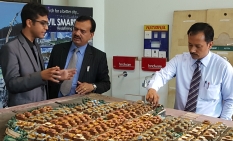 Coming to a sector of housing the writer came through the housing and its related aspects. The Nepal has a potential for cooperative housing, but as far as the writer was conveyed, housing cooperative did not come into existence because of the rules and regulation was not there to support cooperatives in the Constitution. Again, there is hope for the new sectors to be established through its new constitution.
Coming to a sector of housing the writer came through the housing and its related aspects. The Nepal has a potential for cooperative housing, but as far as the writer was conveyed, housing cooperative did not come into existence because of the rules and regulation was not there to support cooperatives in the Constitution. Again, there is hope for the new sectors to be established through its new constitution.
Iteration of the Report of Survey
20th August 2017
Mr. Ahsan Ali Thakur Arrived on 20th August in Kathmandu, Nepal checked in the hotel.
21st August 2017
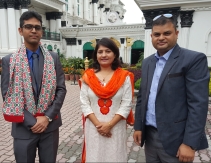
Official visit to began on 21 August 2017, Mrs. Indira Panta and Mr. Bharat Aaryan were there to receive, Mr. Ahsan Ali Thakur from the hotel, moving from Kathmandu to Pharping, Nepal by road of 1-hour drive, visiting the Gopaleshwor Community SACCOs cooperative which are engaged in Financial Literacy Program (Student Saving Clubs).
Warm Welcome to Mr. Ahsan Ali Thakur to their city and their community as well as their Credit Co-operative was given at the time of their arrival. An Introduction session was done by the Office Bearers and the Staff Members.
After that there was Student Saving Club’s Stationary Shop inauguration which was appreciated by Mr. Ahsan Ali Thakur.
A UDC school located in Dakshinkali (Municipality ward no.9), was visited and had a chance to meet the Mr. Ratna Lal Tamang Principal and their religious master. It was exchange of ideas and knowledge.
22nd August 2017
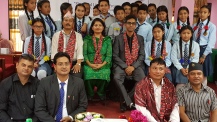 Visit to Gopaleshwor Community Saving & Credit Co-operative Ltd. Providing an Introduction of their community and the Co-operative in which school students of Gaurishankar School, participated in it. This presentation was briefly joined by the Mayor of the City Mr. Mohan Basnet.
Visit to Gopaleshwor Community Saving & Credit Co-operative Ltd. Providing an Introduction of their community and the Co-operative in which school students of Gaurishankar School, participated in it. This presentation was briefly joined by the Mayor of the City Mr. Mohan Basnet.
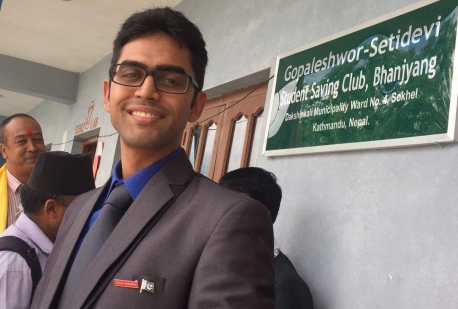 After the presentation, a field visit was scheduled to a Setidevi Secondary School, Sokhel, (Pharping, Kathmandu) where we met the student saving club members, Teachers and Principals. This school is Government operated, with the shortage of resources from the government, the principal provides a bit of a piece of land to teach the student about Botany and the agricultural methods and 2% of the profit from this agriculture is provided for the schools recreational facilities for sports event and festivals and other competitions.
After the presentation, a field visit was scheduled to a Setidevi Secondary School, Sokhel, (Pharping, Kathmandu) where we met the student saving club members, Teachers and Principals. This school is Government operated, with the shortage of resources from the government, the principal provides a bit of a piece of land to teach the student about Botany and the agricultural methods and 2% of the profit from this agriculture is provided for the schools recreational facilities for sports event and festivals and other competitions.
A field visit of the Co-operative managed agriculture farm was scheduled. There was a pilot project for students, in which the student planted their trees as a way of learning as well as making the environment better, a practice that educates to respect the environment as well as teaching them the source of income and how could they be a part of it.
Returning back to the Kathmandu, it was a road trip back there.
23rd August 2017
Arrival at Jhapa through 45 minutes Flight. Received by the Nepal Multipurpose Co-operative (NMC). After the flight there was welcoming and greeting session and an Introduction with the presentation for Mr. Ahsan Ali Thakur with Ms. Indira Panta and Professor Dr. Punya Prasad Regmi.
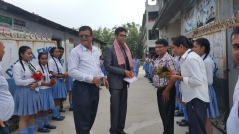 After the Presentation there was a school visit (Durga Boarding Secondary School, Dhaijan (Jhapa District)) and interaction with the students of the Students Saying Club.
After the Presentation there was a school visit (Durga Boarding Secondary School, Dhaijan (Jhapa District)) and interaction with the students of the Students Saying Club.
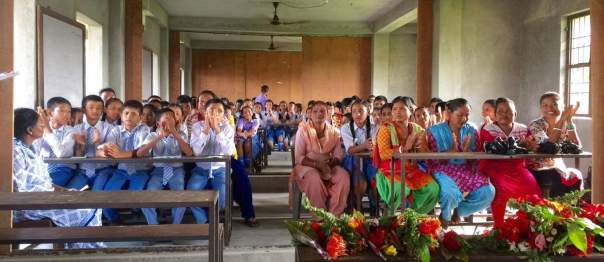
After the School Visit NMC arranged a visit to their dairy farm which has been established 2015 and is under process to get further results. It is slowly and gradually achieving the break-even point. Thus having a positive start and it is based on Cooperative Business Model. It’s a co-operative business that is growing in a region where it has a symbiotic relation with the members. For example, the dairy farms if they want to increase their dairy live stock from more than one they need investment, most likely loan from the bank, which the NMC can provide collateral on behalf of the member. NMC gets a future year of members and trust, while the dairy farmer gets business for the future.
24th August 2017
The day began with the Introduction presentation of NMC Co-operative at the Head office, which I was informed is not in English and I had an option of either to attend it or to stay back at the hotel. I choose to complete my work and take a little bit of rest at the hotel.
Next stop was a chilling station for dairy farmers in Saranamati, Jhapa, it can be termed as a collection station for the milk for a particular area, all the milk is collected from the Members and is utilized by NMC to be send to dairy plant. It is further made in dairy products; Milk, Cheese, Yogurt, Sweets etc.
25th August 2017
Began with breakfast and general discussions.
Moved to SAHARA Saving & Credit Cooperative, one of the biggest Cooperative in the Jhapa District. Met the office bearers of the company and which led to a fruitful discussion of how they work in their respected district and their program to develop youth. They presented about their working and environment and the difficulties they overcame in developing cooperative. SAHARA is operated in 16 districted and growing.
The schedule planned let me to the Tea Garden of Ilam District. Before reaching there, Mr. Ahsan Ali Thakur was introduced to a local dairy chilling plant owner of another private company.
After Lunch, we head straight to the Tea Garden, and the Plant where tea is manufactured. I had the chance to meet the Cooperative Tea Plant and their ways of how Tea is manufactured. Heard their issues with their sales and product quality.
It was refreshing to have their thoughts and the policies they were operating in and the trade difficulties.
On the half day end, it was time to head back to Jhapa district and in the evening it was planned to have an interactive session with the few employees of the NMC. Mr. Ahsan Ali Thakur had the chance to meet the Youth of NMC Committee and its Vice Chairman Mr. Raju Uprety. It was fruitful session to see them motivated and had that glare in their eye to know about cooperative.
The session ended with Mrs. Indira Panta Note and it was helpful for the youth to be part of the Cooperative.
26th August 2017
It was time to Depart from Jhapa and back to Kathmandu through plane. On returning to Khatmandu, I was give o tour of the city, one of the site was to visit the Nepal Jame Masjid (Mosque) which has a history, to its establishment.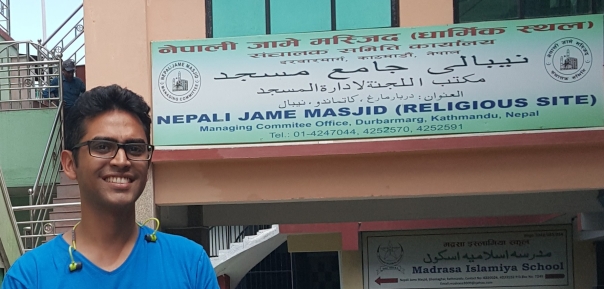
There was time to see numerous temples in the land of Temples with unique history and support. It was truly a destination for the tourist to visit.
It was day to rest and to gather my information from different parts of Nepal. Every minute was worth to establish a better understanding of the cooperative movement in Nepal.
27th August 2017
The day began meeting with the Civil Saving and Credit Co-operative Ltd. though Mrs. Ahsan Ali Thakur’s arrival was announced in short duration, Mr. Prakash Kumar Barma (General Manager) and Mr. Jeevan Raj Bajracharya (Deputy General Manager) were able to make some time to meet Mr. Ahsan Ali Thakur from there scheduled.
A short tour of their office was done and a brief introduction was produced. One of the interesting things about their Co-operative was they were in Housing projects. There I was told that even though we are involved in housing projects but they are not cooperative housing. What they informed me is that the current laws prohibit them from creating Housing Cooperatives but there is hope that the new constitution to make way for the housing cooperative to flourish.
After having a meeting with Civil Saving & Credit Co-operative Ltd. we moved to the National Co-operative Bank Limited (NCBL). To my knowledge, it is the only Cooperative bank that exist in Nepal and is also the one of the biggest Financial Co-operative Institution in Nepal. They have received the recognition from the Government as the Highest Tax Payers Cooperative company in Nepal. Mr. Ahsan Ali Thakur was welcomed by Mr. K. B. Upreti (Managing Director) and rest of the staff. The presentation was presented by Mr. Nabin K. Karki (Head of Department of IT). Presentation contained the background and the history of the Cooperative as well as their Co-operative roots in their Company. It also updated me that the Government is introducing a new software that for Cooperative Institution to incorporate in their systems. This will provide the insight of the Cooperative demographics and the information which government is missing to make itself effective.
Secondly, I was glad to see the information available to NCBL was immensely helpful. After the presentation, we had a few Question & Answer sessions to have some clarification in ambiguous areas in presentation, which were cleared in the context.
Lunch was arranged by the NCBL and the Managing Directors was kind enough to join me for dinner.
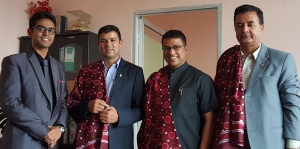 After Lunch Mr. Ahsan Ali Thakur headed to the 3rd Cooperative Institute of the day which is, Nepal Federation of Savings & Credit Cooperative Unions Ltd. (NEFSCUN), A Savings & Credit Cooperative that has members in 74 district out of 75 district. I was informed that they are the leading Cooperative institution in the Nation in the matters of technology and process. Mr. Ahsan Ali Thakur was greeted by D.B. Basnet (Chairman), Paritosh Paudyal (Senior Vice Chairperson) and Shivajee Sapkota (CEO). A presentation was presented by the Shivajee Sapkota (CEO) with the aid of the video followed by the Question & Answer session. The presentation was substantially informative to have an overview of not just NEFSCUN but the Nepal Cooperative.
After Lunch Mr. Ahsan Ali Thakur headed to the 3rd Cooperative Institute of the day which is, Nepal Federation of Savings & Credit Cooperative Unions Ltd. (NEFSCUN), A Savings & Credit Cooperative that has members in 74 district out of 75 district. I was informed that they are the leading Cooperative institution in the Nation in the matters of technology and process. Mr. Ahsan Ali Thakur was greeted by D.B. Basnet (Chairman), Paritosh Paudyal (Senior Vice Chairperson) and Shivajee Sapkota (CEO). A presentation was presented by the Shivajee Sapkota (CEO) with the aid of the video followed by the Question & Answer session. The presentation was substantially informative to have an overview of not just NEFSCUN but the Nepal Cooperative.
Interesting part was the NEFSCUN has its own Financially Literacy Program run under the financial support of SaMi/Helvetas but it is not related to Financial Literacy Program for students and graduates, started by Indira Panta. It has similar features but for all the different audience.
It was a learning Experience that was beneficial not just to me but to the ICA Committee on Youth Cooperation (ICYC).
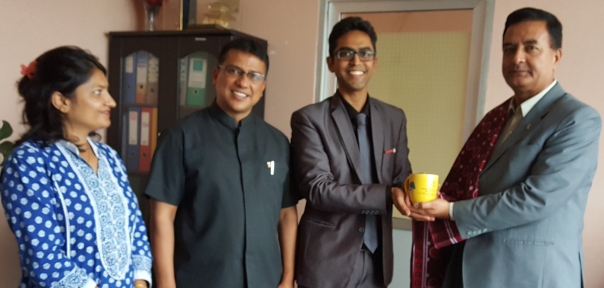
Appendix
Gopaleshwor Community Saving & Credit Co-operative Ltd.
| Gopaleshwor Community Saving & Credit Co-operative Ltd. | ||
| S.No. | Name | Position |
| 1 | Beerendra Kumar Balami | Chairman |
| 2 | Beejay Kumar Maharjan | Vice Chairman |
| 3 | Rejana Maharjan | Seceretary |
| 4 | Bharatmani Aryal | Treasure |
| 5 | Sarala Shrestha | Board Member |
| 6 | Dilu Balami | Board Member |
| 7 | Ram Kumar Balami | Board Member |
| 8 | Kiran Nepali | Board Member |
| 9 | Damodar Raila | Board Member |
| 10 | Pradumna Aryal | Board Member |
| Gopaleshwor Community Saving & Credit Co-operative Ltd. (Office Staff) | ||||
| S.No. | Name | Position | ||
| 1 | Bansi Krishna | Board Member | ||
| 2 | Krishna Bahadur Balami | Executive Manager | ||
| 3 | Sabina Maharjan | Office Chief | ||
| 4 | Dilu Balami | Accountant | ||
| 5 | Samjhana Balami | Computer Operator | ||
| 6 | Sushila Acharya | Marketer | ||
| 7 | Asmita Acharya | Marketer | ||
| 8 | Januka Bista | Accountant | ||
| Gopaleshwor Community Saving & Credit Co-operative Ltd. (Student Saving & Credit Club Managing Committee) | ||||
| S.No. | Name | Position | ||
| 1 | Beejay Kumar Maharjan | Coordinator | ||
| 2 | Suman Kumar Balami | Supervisor | ||
| 3 | Ashmita Balami | Member of student’s coordinator | ||
| 4 | Sushila Acharya | Member of Parent’s coordinator | ||
| Gopaleshwor Community Saving & Credit Co-operative Ltd. (Student Saving Club’s Montessori Management) | ||
| S.No. | Name | Position |
| 1 | Ranjeeta Balami | Coordinator |
| 2 | Satidevi Balami | Principal |
| 3 | Suman Kumar Balami | Vice Principal |
| 4 | Bhawana Prajapati | Accountant |
| 5 | Sarashwoti Tamang | Teacher |
| 6 | Sunita Tamang | Teacher |
| 7 | Rassa Shrestha | Co- Teacher |
| 8 | Bageshwori Shrestha | Sister |
| 9 | Sarita Maharjan | Sister |
| 10 | Rajesh Balami | Driver |
| Gopaleshwor Community Saving & Credit Co-operative Ltd. (Student Saving Club’s Stationary Shop) | ||
| S.No. | Name | Position |
| 1 | Ranjeeta Balami | Coordinator |
| 2 | Satidevi Balami | Principal |
| 3 | Suman Kumar Balami | Vice Principal |
| 4 | Bhawana Prajapati | Accountant |
| 5 | Sarashwoti Tamang | Teacher |
| 6 | Sunita Tamang | Teacher |
| 7 | Rassa Shrestha | Co- Teacher |
| 8 | Bageshwori Shrestha | Sister |
| 9 | Sarita Maharjan | Sister |
| 10 | Rajesh Balami | Driver |
List of Members registered in Nepal:
List of Members of Co-operative Companies in Nepal. (http://www.ica-ap.coop/coop-search-by-country-only?field_country_value=NP)
- NEPAL MULTIPURPOSE CENTRAL CO-OPERATIVE UNION LTD (NEMCCU)
- NATIONAL CO-OPERATIVE BANK LTD (NCBL)
- NEPAL AGRICULTURE COOPERATIVE CENTRAL FEDERATION (NACCF)
- NATIONAL COOPERATIVE FEDERATION OF NEPAL LTD. [NCF]
- NATIONAL CO-OPERATIVE DEVELOPMENT BOARD (NCDB)
Nepal Multipurpose Co-operative (NMC) Society
| Board Members | ||
| S.No. | Name | Position |
| 1 | Harka Subba, Fyak | Director |
| 2 | Laxmi Adhikari Kafle | Director |
| 3 | Kamal Guragain | Director |
| 4 | Haricharan Siwakoti | Director |
| 5 | Madhavchandra Pyakurel | Director |
| 6 | Bhagwati Ghimire Mainali | Director |
| 7 | Keshav Prasad Pokhrel | Director |
| 8 | Subha Laxmi Rai | Director |
| 9 | Khemnath Mishra | Director |
| 10 | Narayan Prasad Koirala | Director |
| 11 | Damber Bahadur Basnet | Director |
| 12 | Thakur Prasad Siwakoti | Director |
| 13 | Sri Prasad Mainali | Director |
| 14 | Laxmi Prasad Uprety | Vice Chairman |
| 15 | Ram Chandra Uprety | Chairman |




























